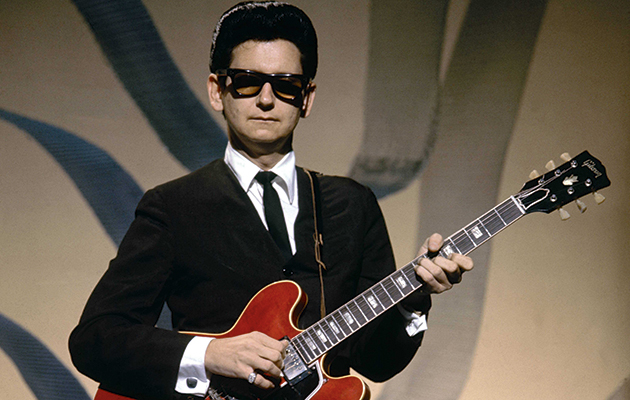It’s a wonder Roy Orbison kept a career afloat at all in the late ’60s. In 1966, his wife, Claudette, aged just 24, died in his arms following a motorcycle accident. Two years later, a fire killed two of his three sons, aged six and ten, and destroyed his home. Then there were pop music’s volatile twists and turns, which began to stiffly challenge him after his early-’60s superstar years of “Oh, Pretty Woman”, “Crying” and “In Dreams”. Orbison, possessor of a dramatically orchestral, four-octave voice, tried everything to break back through – originals to well-chosen covers, sharp soundtracks to tribute albums, blistering rock’n’roll to the kind of haunting, otherworldly balladry only he could deliver – in those chaotic, hard-rock/psychedelic/hippie/FM years. Commercial traction was negligible.
What the public hardly fathomed then, only to appreciate decades later (thanks to a renaissance via the Traveling Wilburys and David Lynch’s Blue Velvet), was that Orbison’s sheer voice was innately capable, regardless of the state of affairs, of monumental transcendence. The MGM Years’ 152 tracks, featuring eight instant cutout LPs in their day, brings that notion home time and again, filled with many of Orbison’s least noticed, most adventurous moments; in secret, he was hitting his prime.
Take 1968’s Many Moods: striking an operatic, soul-vocal groove, Orbison leads almost every song into shivery territory. He steals “Unchained Melody” from the Righteous Brothers’ clutches with a measured, hot-and-cold delivery, methodically building it into a mountain of desperation. The mid-tempo rocker “Heartache” follows a familiar Orbison trope – is what I’m experiencing real? Is it a dream? – in which his voice swirls progressively up into the heavens. The heartbreaking “Walk On”, rising to an untenable, shame-filled “Running Scared”-type intensity, is spellbinding. Similar cases could be made about 1967’s Cry Softly, Lonely One, including its graceful ode to misunderstanding, “Communication Breakdown”, or 1966’s The Classic Roy Orbison and “Growing Up”, an alternately breezy and unhinged rocker.
A batch of non-LP singles and B-sides extend the story, the most enchanting of which demonstrate Orbison’s fondness for darkly shaded story songs – the murder ballad “Tennessee Owns My Soul”, or “Southbound Jericho Parkway”, a slightly psychedelic five-part suite in which a man’s suicide is probed from multiple angles. A previously unknown and unheard 1969 studio album, One Of The Lonely Ones, supplies more highlights, including an Elvis-ized interpretation of Mickey Newbury’s winsome “Sweet Memories”.
It’s true that Orbison never quite recovered from losing early producer Fred Foster and his intensely atmospheric contributions; and that when record sales began to dip, MGM truly lost the thread in both recording strategy and in promoting Orbison’s talents. Yet this opulent box – admittedly erratic in places, yet fascinating and just as often breathtaking – paints a picture of an incredible talent, taking chances, stretching out in surprising directions, fighting hard against a cruel wind.
Uncut: the spiritual home of great rock music.


